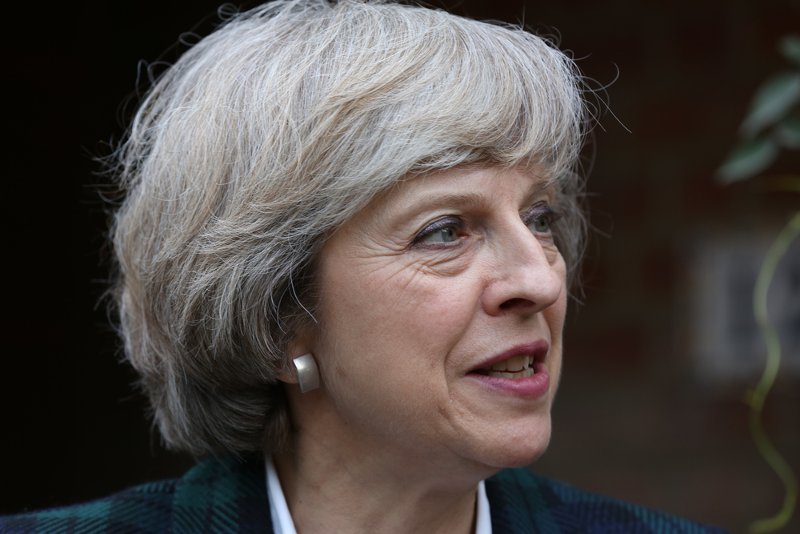In the wake of Theresa May’s keynote speech at the Conservative Party Conference, the pound dropped by 0.4% against the Euro.

Neil Wilson is senior market analyst at ETX Capital
All eyes are on the economy as we loom ever closer to the start of 2018, and the year that Britain’s future trading relationship with the European Union might be agreed.
A key barometer for predicting the state of Britain's economy is the strength of the pound. A strong pound signals investor confidence in the UK assets, trade and future growth prospects.
During Theresa May’s premiership, the pound has consistently fallen in value against the euro. Meanwhile, against the US dollar, sterling has risen somewhat throughout the year.
To determine how much of this has been driven by Theresa May's speeches, we have analysed their immediate impact upon the value of the pound.
Large fluctuations can be seen as May makes some of her most famous speeches, including a recovery in the pound versus the dollar following the announcement of her premiership.
But just how much of this is really down to May?
In turbulent times, she's faced a somewhat unstable US political ecosystem, which has seen the dollar decline against all its main rivals throughout 2017.
Take a look at the data; how much do you think May's influence has had over the British pound?
Here’s a little more commentary on the impact of each of Theresa May’s speeches.
Announcement of premiership – 13July 2016
The week after the UK voted to leave the EU, the pound hit 31-year lows against the dollar but by the announcement of her premiership, it had recovered to trade at $1.32. The fact that Theresa May had supported the Remain campaign was welcomed by investors.
First Brexit speech – 17July 2017
This was Prime Minister May’s first speech outlining her plans for Britain’s exit from the European Union. The pound rose 2% against the US dollar and climbed to €1.14 against the Euro.
Brexit date speech – 3October 2016
While outlining her timetable for starting Brexit negotiations, the pound fell to a three-year low against the Euro by over 1% to €1.14 but it had recovered very slightly by late evening. Meanwhile, the pound reached its lowest rate against the US dollar since July 2016, falling by almost 1% and reaching $1.2797.
Lancaster House speech – 16January 2017
At the Lancaster House Speech where Theresa May revealed her plans for Brexit, sterling advanced across the board, climbing by over 1% against all the majors (and over 2% against the US dollar).
World Economic Forum – 19January 2017
Theresa May’s speech in Davos, Switzerland, gave the pound a boost, reaching a midday high of $1.2336 against the dollar. By the end of the day, it had settled below $1.23.
General election announcement – 18April 2017
This speech confirmed that the Prime Minister would present a motion to the House of Commons, calling for snap General Election. Initially the sterling dropped significantly but had pulled higher by more than 1.2% to trade at $1.27, its highest since December 2016.
Florence Speech - 22September 2017
After the Prime Minister outlined her proposal for a two-year implementation period of Brexit, the pound ended the day down 0.4% against the dollar, while it decreased by 0.54% against the Euro, reading €1.1310.
Conservative Party Conference – 5October 2017
In the wake of Theresa May’s keynote speech at the Conservative Party Conference, the pound dropped by 0.4% against the Euro.
Theresa May’s speeches outlining her government’s approach to Brexit clearly have a big impact on the pound’s short-term movements.
But longer-term her words matter less than what’s happening on the ground in the Brexit negotiations.
Furthermore, the biggest impact on the pound is the relative performance of its two biggest peers – the dollar and the euro.
Forex is a zero-sum game. The dollar’s been sliding all year against its major peers, giving a lift to sterling.
Meanwhile the euro has rallied for most of 2017 as the ECB moved closer to unwinding its giant stimulus package, leaving the pound trailing against the single currency.”



